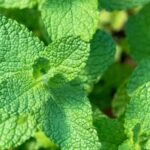What is the best manure for vegetable gardens? When it comes to nourishing your plants and promoting healthy growth, manure can be a valuable resource. In this article, we will explore the importance of manure in vegetable gardening, the different types of manure available, their nutritional content, and how to use them effectively.
Manure is an essential component of successful vegetable gardening. It not only provides vital nutrients for plant growth but also helps to improve soil structure and moisture retention. By understanding the benefits of using manure as a fertilizer, gardeners can make informed decisions about which type of manure will best suit their needs.
In the following sections, we will delve into the various types of manure such as cow, horse, chicken, sheep, and composted manure. We will examine the nutritional content of each type and how these nutrients benefit specific vegetables.
Additionally, we will explore factors to consider when choosing manure such as organic vs. non-organic options, cost and availability, as well as potential risks and precautions when using manure. After reading this article, you will have a comprehensive understanding of how to integrate manure into your vegetable garden for optimal results.
Different Types of Manure
When it comes to vegetable gardening, choosing the right type of manure is crucial for providing essential nutrients to your plants. There are several different types of manure that can be used as fertilizer, each with its own set of benefits and considerations. Among the most common types of manure are cow, horse, chicken, and sheep manure, as well as composted manure.
Cow manure is prized for its balanced nutritional content which includes a good amount of nitrogen that promotes lush foliage growth in plants. Horse manure also contains high levels of nitrogen but may have more weed seeds depending on the source.
Chicken manure has one of the highest concentrations of nitrogen among the different types of manure which makes it great for leafy green vegetables like lettuce or spinach. Sheep manure is known for being less smelly than other types and provides a good balance of nutrients.
It’s important to consider how each type of manure will benefit the specific vegetables in your garden. For example, tomatoes thrive with the use of balanced nutrients like those found in cow or sheep manure while cucumbers and peppers prefer more nitrogen-rich soil so chicken or horse manures would be ideal. Taking these factors into account will help you choose the best type of manure for your vegetable garden.
| Type of Manrue | Nutritional Content |
|---|---|
| Cow Manrue | Good amount of nitrogen |
| Horse Manrue | High levels of nitrogen |
| Chicken Manrue | One of the highest concentrations od Nitrogen among different types’ nutrient contents. |
Nutritional Content of Manure
Nitrogen, Phosphorus, and Potassium Levels
Different types of manure have varying levels of nitrogen, phosphorus, and potassium, which are essential nutrients for plant growth. For example, chicken manure tends to have higher levels of nitrogen compared to cow or horse manure. Understanding the nutrient content of the manure you choose is important in ensuring that your vegetable plants receive the proper balance of nutrients for healthy growth.
How These Nutrients Benefit Vegetable Plants
Nitrogen is crucial for leafy green vegetables as it promotes lush foliage and overall plant growth. Phosphorus supports root development, flowering, and fruiting processes in vegetable plants. Meanwhile, potassium helps with overall plant health and disease resistance. Knowing how these nutrients benefit different types of vegetables can help you make an informed decision on which type of manure to use for your specific crops.
Considerations for Vegetable Gardeners
When considering the nutritional content of manure for vegetable gardens, it’s important to take into account the existing nutrient levels in your soil. Conducting a soil test can help determine if there are any deficiencies or excesses in nitrogen, phosphorus, and potassium. This information can guide you in choosing the right type of manure or adjusting the application rate to meet the specific needs of your vegetable garden.
Best Manure for Specific Vegetables
Manure can be a valuable source of nutrients for vegetable gardens, but not all types of manure are created equal when it comes to specific vegetables. When choosing the best manure for specific vegetables, consider the nutrient content and pH level of the soil, as well as the potential risks associated with different types of manure.
For tomatoes, a balanced blend of nutrients is essential for healthy growth and fruit production. Chicken manure is an excellent choice due to its higher nitrogen content, which promotes lush foliage and strong stem development. However, it’s important to compost chicken manure before using it in the garden to avoid burning the plants with its high levels of ammonia.
Cucumbers thrive in well-draining soil with ample organic matter. Sheep manure is an optimal choice for cucumbers as it provides a good balance of essential nutrients without overwhelming levels of nitrogen, which could result in excessive vine growth at the expense of fruit production. It also has a lower risk of contaminating produce with pathogens compared to other types of manure.
Peppers benefit from a slow-release source of nutrients and slightly acidic soil conditions. Horse manure, when properly aged and composted, can provide the right combination of fertility and pH level for pepper plants. Its moderate levels of nitrogen and potassium support healthy foliage and fruit development without causing excessive vegetative growth.
| Vegetable | Recommended Manure |
|---|---|
| Tomatoes | Chicken Manue (Composted) |
| Cucumbers | Sheep Manure |
| Peppers | Horse Manure (Aged & Composted) |
Factors to Consider When Choosing Manure
When it comes to choosing the best manure for your vegetable garden, there are several factors to consider. From the type of manure to its organic or non-organic nature, and even the potential risks involved, it’s important to weigh all these factors before making a decision.
Organic vs. Non-Organic Manure
One of the first considerations when choosing manure for your vegetable garden is whether to use organic or non-organic manure. Organic manure is derived from plant or animal sources that have not been chemically treated, making it a more natural option for fertilizing your vegetables. Non-organic manure, on the other hand, may contain synthetic chemicals or antibiotics which can affect the health of both the plants and those consuming them.
Cost and Availability
Another factor to consider is the cost and availability of different types of manure. Some types may be more readily available in your area, while others may come at a higher price. It’s essential to evaluate these factors based on your budget and local resources before making a selection.
Potential Risks and Precautions
Using manure in your vegetable garden can come with potential risks such as pathogens, weed seeds, or excessive nutrient levels that can harm your plants. It’s crucial to take proper precautions such as composting or aging the manure before using it in your garden to reduce these risks. Additionally, considering any regulations or guidelines for using manure in your area is important for ensuring environmental safety.
How to Use Manure in Vegetable Gardens
When it comes to using manure in vegetable gardens, it is important to understand the proper methods for applying it to the soil. Here are some tips for effectively using manure in your vegetable garden:
- Choose well-aged manure: It is best to use composted or aged manure in your vegetable garden. Fresh manure can contain high levels of ammonia, which can burn plant roots. Look for manure that has been composted for at least six months to a year.
- Prepare the soil: Before applying manure, make sure to till the soil and remove any weeds or debris. This will help the manure mix into the soil more effectively and prevent any potential contamination from pathogens.
- Apply in moderation: Too much manure can lead to over-fertilizing and burning your plants. It is important to apply manure sparingly and follow recommended guidelines for the specific type of vegetables you are growing.
In addition, there are ways to avoid burning or over-fertilizing your plants with manure:
- Layering: Instead of mixing the manure directly into the planting area, you can layer it on top of the soil as mulch. This allows for slow decomposition and release of nutrients while also preventing direct contact with plant roots.
- Dilution: Another method is to dilute the manure with water before applying it to the soil. This helps reduce its potency and minimizes the risk of burning your plants.
By following these techniques, you can ensure that you are using manure effectively in your vegetable garden without causing harm to your plants.
Manure Management and Storage
Proper management and storage of manure is an essential aspect of using it in vegetable gardening. Whether you are using cow, horse, chicken, sheep, or composted manure, it is important to have a plan for how to handle and store it effectively. One option for managing manure is to create a compost pile. Composting manure allows it to break down over time, resulting in a nutrient-rich material that can be used to improve the soil in your vegetable garden.
When storing manure, it is essential to keep it in a designated area away from water sources such as rivers, lakes, or wells. This helps prevent contamination of water supplies with harmful pathogens and nutrients found in the manure. Additionally, proper storage prevents the unpleasant odors that can result from decomposing manure.
For those with limited space or living in urban areas, consider vermicomposting as an alternative method for managing and storing manure. Vermicomposting uses earthworms to break down organic materials such as manure into nutrient-rich compost. This method can be done indoors and is particularly suitable for small-scale vegetable gardening.
Overall, effective management and storage of manure not only benefit your vegetable garden but also reduce environmental impact by preventing contamination and odor issues. By implementing these techniques, you can make the most of using manure as a natural fertilizer while minimizing potential drawbacks.
Conclusion
When it comes to choosing the best manure for your vegetable garden, there are several factors to consider. The type of vegetables you are growing, the nutritional content of the manure, and how it can be used in the planting and growing process all play a role in determining the best option for your garden. Here are some key points to keep in mind when selecting the right manure for your vegetable garden:
- Consider the nutritional content: Different types of manure have varying levels of nitrogen, phosphorus, and potassium. For example, chicken and horse manure are generally higher in nitrogen, making them suitable for leafy greens and plants that require lots of foliage. On the other hand, cow and sheep manure may have higher levels of phosphorus, which is beneficial for root development.
- Think about organic vs. non-organic: If you are aiming for an organic vegetable garden, it’s important to choose manure that is also organic. Non-organic manure may contain synthetic chemicals or antibiotics that you do not want in your garden.
- Factor in cost and availability: Some types of manure may be more readily available in your area than others. Consider what is easily accessible to you and whether it fits within your budget.
It’s important to note that regardless of the type of manure you choose, proper application is crucial to avoid burning or over-fertilizing your plants. Always follow recommended guidelines for using manure in your vegetable garden to ensure healthy growth and a bountiful harvest.
Remember that each vegetable may have unique preferences when it comes to the type of manure used as fertilizer. It’s important to research which type works best for specific vegetables such as tomatoes, cucumbers, peppers, etc. so that you can provide them with the nutrients they need for optimal growth.
Q&A Section
In conclusion, the use of manure in vegetable gardens can provide numerous benefits to the overall health and productivity of the plants. From the high nutrient content to the improvement of soil structure, manure is a valuable resource for gardeners looking to cultivate thriving vegetable crops. However, it is important to carefully consider the type of manure being used, its nutritional content, and proper application methods in order to maximize its effectiveness without causing harm to the plants or environment.
When selecting the best manure for specific vegetables, it’s essential to take into account the nutrient needs of each plant as well as any potential risks associated with certain types of manure. Additionally, organic options may be preferred by those who prioritize environmental sustainability and long-term soil health. Considering factors such as cost, availability, and potential regulations is also crucial in making informed decisions about which type of manure to use in your garden.
To successfully implement manure in your vegetable garden, proper storage and composting techniques should be followed to ensure that it is free from contaminants and pathogens. Additionally, following recommended guidelines for application rates and methods will help avoid issues such as over-fertilization or plant burning. By taking these considerations into account and staying informed about best practices for using manure in vegetable gardening, you can effectively harness its benefits while minimizing potential drawbacks.
Frequently Asked Questions
What Kind of Manure Is Best for Veggie Garden?
The best manure for a veggie garden is typically well-aged cow or horse manure. This type of manure has been broken down and decomposed, making it less likely to burn the plants and more suitable for direct application to the garden soil. Additionally, it provides essential nutrients that are beneficial for vegetable growth.
Is Chicken or Cow Manure Better for Vegetable Garden?
Both chicken and cow manure can be beneficial for a vegetable garden, but they have different characteristics. Chicken manure is higher in nitrogen, which can promote leafy growth in vegetables, while cow manure is higher in phosphorus and potassium, which are important for root development and fruit production.
Ultimately, the choice between the two depends on the specific needs of the vegetable plants being grown.
Is Horse or Cow Manure Better for Vegetable Gardens?
When deciding between horse or cow manure for a vegetable garden, it’s important to consider their nutrient content and potential impact on soil structure. Horse manure tends to contain more weed seeds compared to cow manure, so proper composting or aging may be necessary before using it in the garden.
Cow manure typically has a higher nitrogen content, which can promote healthy leafy growth in vegetables. Ultimately, both types can be beneficial if used appropriately in the veggie garden.

If you’re looking to get into vegetable gardening, or are just looking for some tips on how to make your current garden better, then you’ve come to the right place! My name is Ethel and I have been gardening for years. In this blog, I’m going to share with you some of my best tips on how to create a successful vegetable garden.





